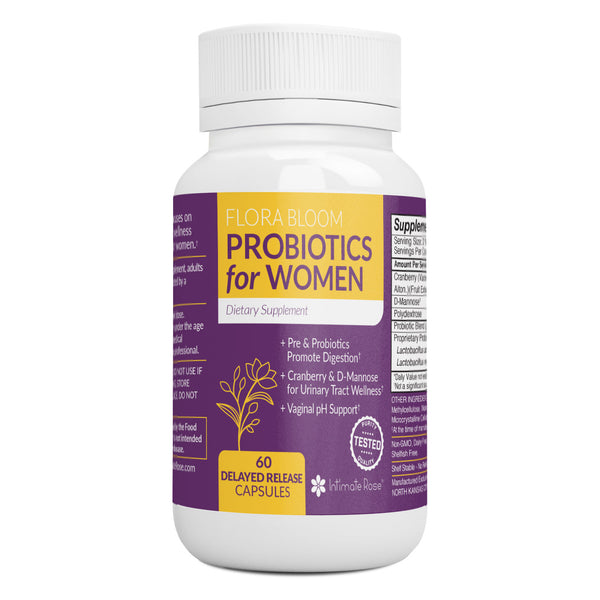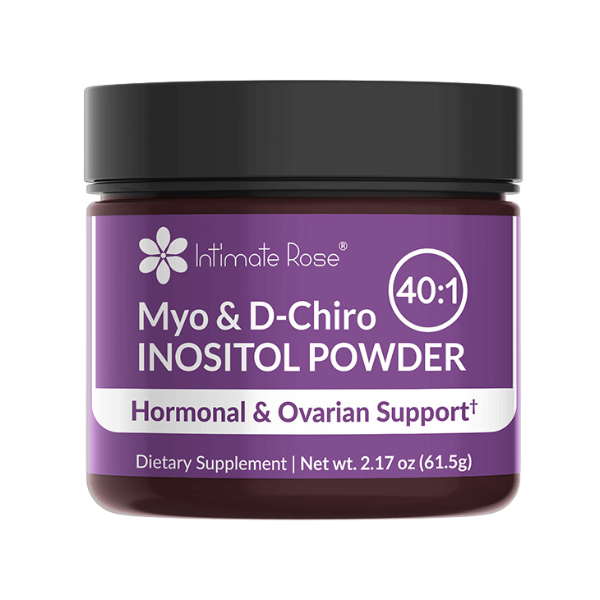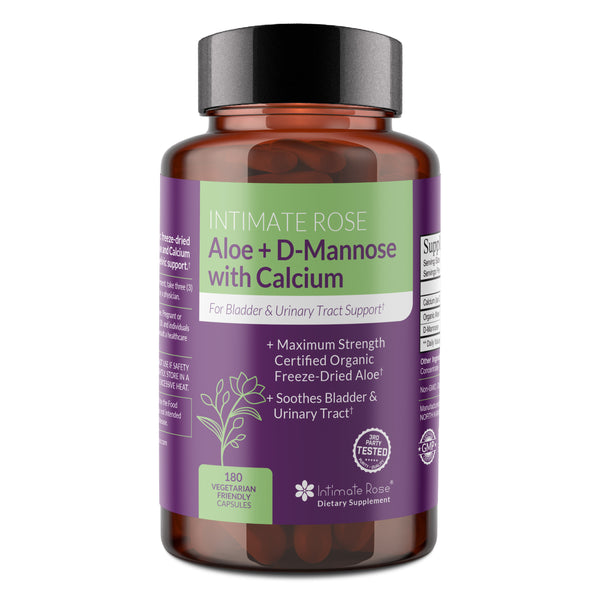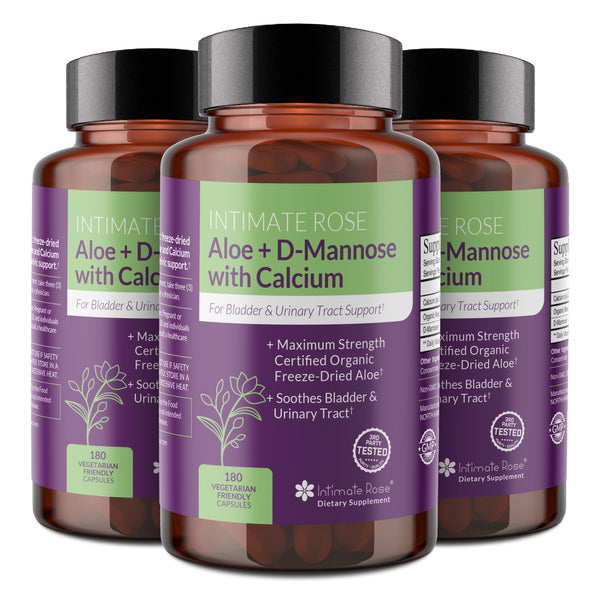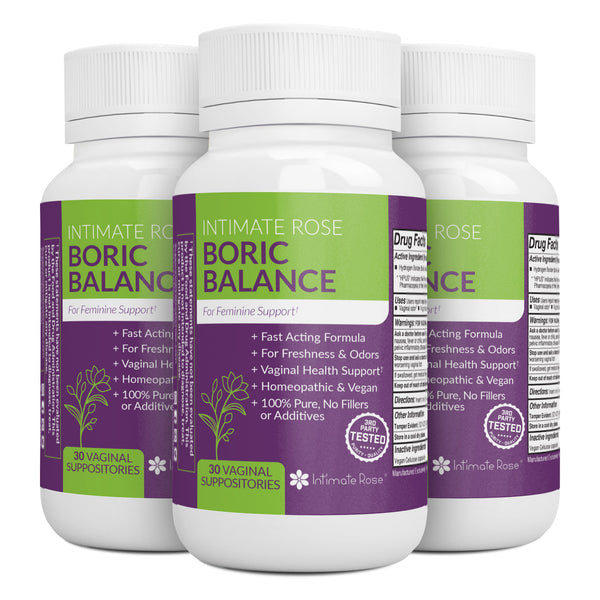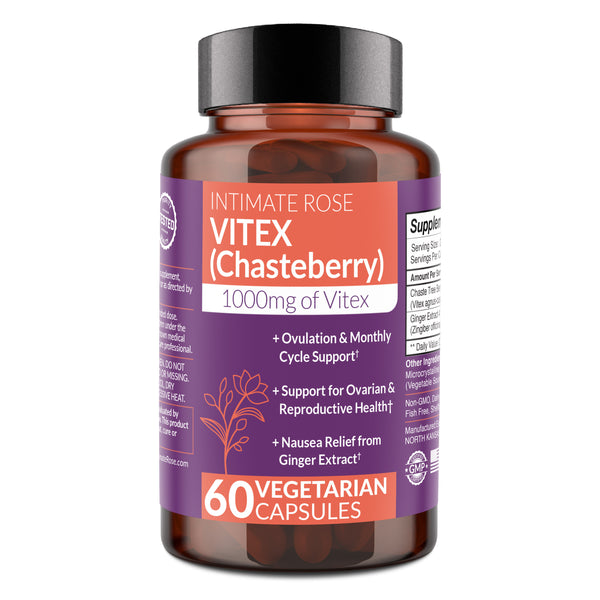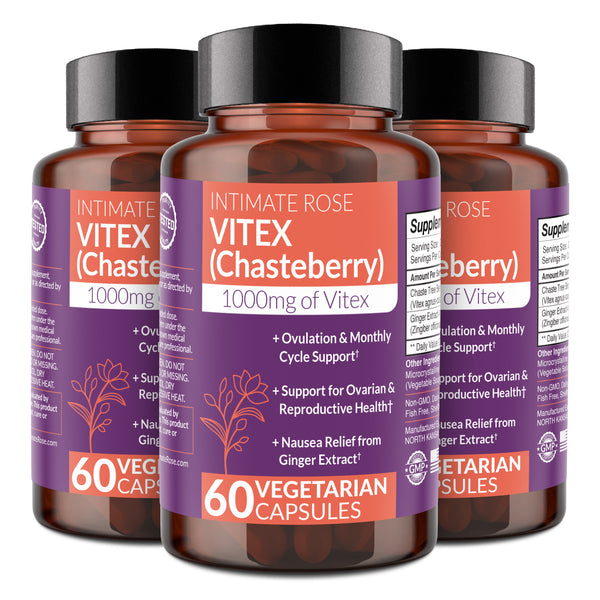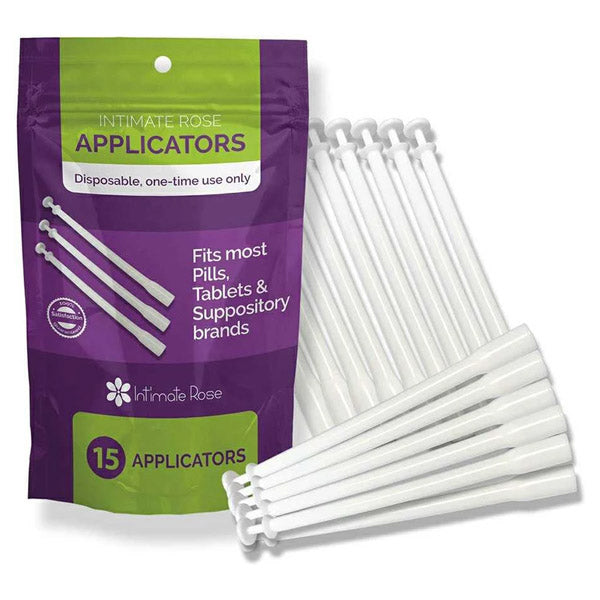It is estimated that 6-26% of women worldwide have polycystic ovarian syndrome (PCOS), the majority of which find it difficult to lose weight due to the inflammation, hormonal imbalance, and insulin resistance that is associated with the condition. While weight gain and PCOS are certainly interconnected, don’t let frustration get you down. Here’s our expert guide to PCOS weight loss with some manageable tips for losing weight.
Things Off Down There?
Why Is Weight Loss So Hard with PCOS?
PCOS is an endocrine disorder that causes hormonal imbalances, irregular menstruation, inflamed ovaries, the growth of cysts on the outer edges of the ovaries, and weight gain, to name just a few of the symptoms. While the exact cause of PCOS is not yet fully understood, we do know that hormones, in particular, are connected to several bodily functions that impact weight.
When and how often we feel hungry is controlled by our hormones, for instance, as well as how our food is metabolized and used as energy within the body. Our stress levels are also impacted by our hormones, with elevated cortisol levels increasing cravings for fatty, sweet, and salty foods.
In addition to hormonal imbalances, women with PCOS also encounter insulin resistance, which means blood sugar levels and energy storage are not managed in the usual way. In short, high levels of insulin lead to weight gain.
Positive news is emerging from recent studies into PCOS, however. And research has shown that even as little as 5% weight loss can have a positive impact on hormone levels and insulin resistance. So while losing weight might be challenging for PCOS patients, the slow and steady benefits become cyclical, in that small amounts of weight loss can improve symptoms and subsequently lead to more weight loss.
Read on for our best tips to lose weight with PCOS.
1. Slow and Steady Wins The Weight Loss Race
Although losing weight with PCOS can be challenging and even discouraging at times, it is possible. Allow yourself to accept before you start that while progress may be slow, you are on a journey to improve your quality of life and it might take time.
Sure, you might not notice a significant weight loss straight away, but each additional day that you stick to your weight loss plan, you will feel healthier both physically and mentally.
In addition to losing weight, remind yourself that you are also reducing the risk of diabetes, heart disease, and other symptoms that can be triggered by PCOS, like acne, excess hair growth, and infertility.
2. Regular Exercise at Your Own Pace
While 30 minutes of exercise 3-5 times a week is recommended for overall health and wellbeing, fitness experts agree that it’s perfectly fine to build up to that 30 minutes over time. Your exercise does not need to be a full-on gym training session either.
It can be any cardiovascular activity that you enjoy, like cycling, hiking with friends, playing a team sport, brisk walking while listening to an audiobook, or listening to your favorite motivational music on a rowing machine.
Take a few minutes to catch your breath whenever you need to, and build your strength and fitness by pushing yourself a little harder each week.
2. Stick to A Routine
To get through those days when you just don’t feel like exercising, create a routine that you can stick to. If you’re a morning person, slot some physical time in before you head to work. If early mornings are not your cup of tea, don’t expect yourself to stick to a morning routine in the long term. Instead, carve out some time for exercise during your lunch break or in the evening.
Most importantly, sticking to a routine of starting and finishing exercise at the same time every day will help you to incorporate it into your life as a healthy habit rather than a chore.
3. Improve Your Diet
When it comes to improving your diet, don’t think about it as ‘starting a diet’, think about it as cutting down on foods like carbohydrates and sugars, which react with the insulin resistance associated with PCOS.
You can replace your usual carbs with wholegrain bread and pasta, or potatoes and fries with sweet potatoes. In addition, increase your intake of lean protein, vegetables, and healthy fats like avocados and nuts.
Bear in mind that there is no sense in depriving yourself of food that you love, but there is a lot of sense in limiting your treats to once or twice per week.
Nutritionists Tip: For weight loss, nutritionists recommend eating lean protein and vegetables before carbohydrates to lower blood sugar levels. Consuming carbohydrates first causes blood sugar to spike and then fall drastically soon after, which usually results in food cravings.
4. Be Mindful of Food Cravings
Due to hormonal imbalances and high blood sugar levels, many women with PCOS experience fierce food cravings and often succumb to binge eating, which only makes them feel worse about their weight gain. Although cravings can be difficult to control, there are particular skills you can learn to relieve them.
Learning to understand what triggers your food cravings, for instance, can help you to manage them more healthily. Some women find that leaving the house for a walk in the fresh air takes their mind off the cravings, others satisfy them with a healthy snack, and many women with PCOS report that daily meditation helps their mind to let go of recurring thoughts about food. Speak with a therapist or a nutritionist to find the best way of coping with food cravings for you.
5. Eat Lots of Fiber
Fiber helps you to stay fuller for longer after meals and eating plenty of it helps women with PCOS to lose weight. Along with a regular exercise routine and a low–carb, low-sugar diet, women with PCOS should aim to eat roughly 25 grams of fiber per day.
Interestingly, it has been reported that the average daily intake of fiber for women in the U.S. is currently 16 grams. In comparison, during a recent study, it was revealed that a higher fiber consumption helped to lower insulin resistance associated with PCOS, as well as reduce body fat and belly fat.
6. Don’t Over-Do It
Although exercising excessively and following strict diets that dangerously limit daily calorie intake might seem like a good idea to lose weight, these types of ‘quick fixes’ will end up doing your body more harm than good. Cutting calories to an extreme level will not only affect your overall health but will more than likely end in you gaining the weight back once you can no longer sustain the low-calorie count.
Exercising excessively has its drawbacks too, in that, too much physical activity can lead to injuries that could prevent you from exercising for days or weeks afterward, setting your weight loss plan completely off track. Like we said in the beginning, slow and steady wins the PCOS weight loss race.
7. Probiotics For a Healthy Gut
Research has shown that healthy gut bacteria called lactobacilli play a crucial role in metabolism and weight loss, however, studies have also revealed that women with PCOS have significantly less healthy gut bacteria than women without PCOS. To increase their healthy gut bacteria, healthcare specialists recommend that women with PCOS should add a daily probiotic supplement to their weight loss plan.
Flora Bloom Probiotics for Women from Intimate Rose, for example, not only help to increase good bacteria in the gut to help with weight loss, but they also aid in digestion, and with added cranberry and D-Mannose, they support urinary tract health too and promote vaginal health.
Alternatively, a daily intake of foods rich in probiotics like natural yogurt, kombucha, and other fermented foods, can also increase healthy gut bacteria.
8. Myo & D-Chiro Inositol Supplements
In the last twenty years, several studies have found that a combination of Myo and D-Chiro Inositol can influence the use of insulin in women suffering from PCOS, as well as regulate brain hormones like serotonin and dopamine.
This, in turn, helps to reduce PCOS symptoms like high testosterone levels, poor ovarian health, infertility, and the onset of diabetes. By reducing these symptoms, women with PCOS find it easier to lose weight.
The added ashwagandha and vitamin D in the Myo and D Chiro Inositol Supplement from Intimate Rose also work to reduce additional symptoms of PCOS like stress and mood swings, making it the most powerful inositol supplement on the market.
How does the Inositol supplement work?
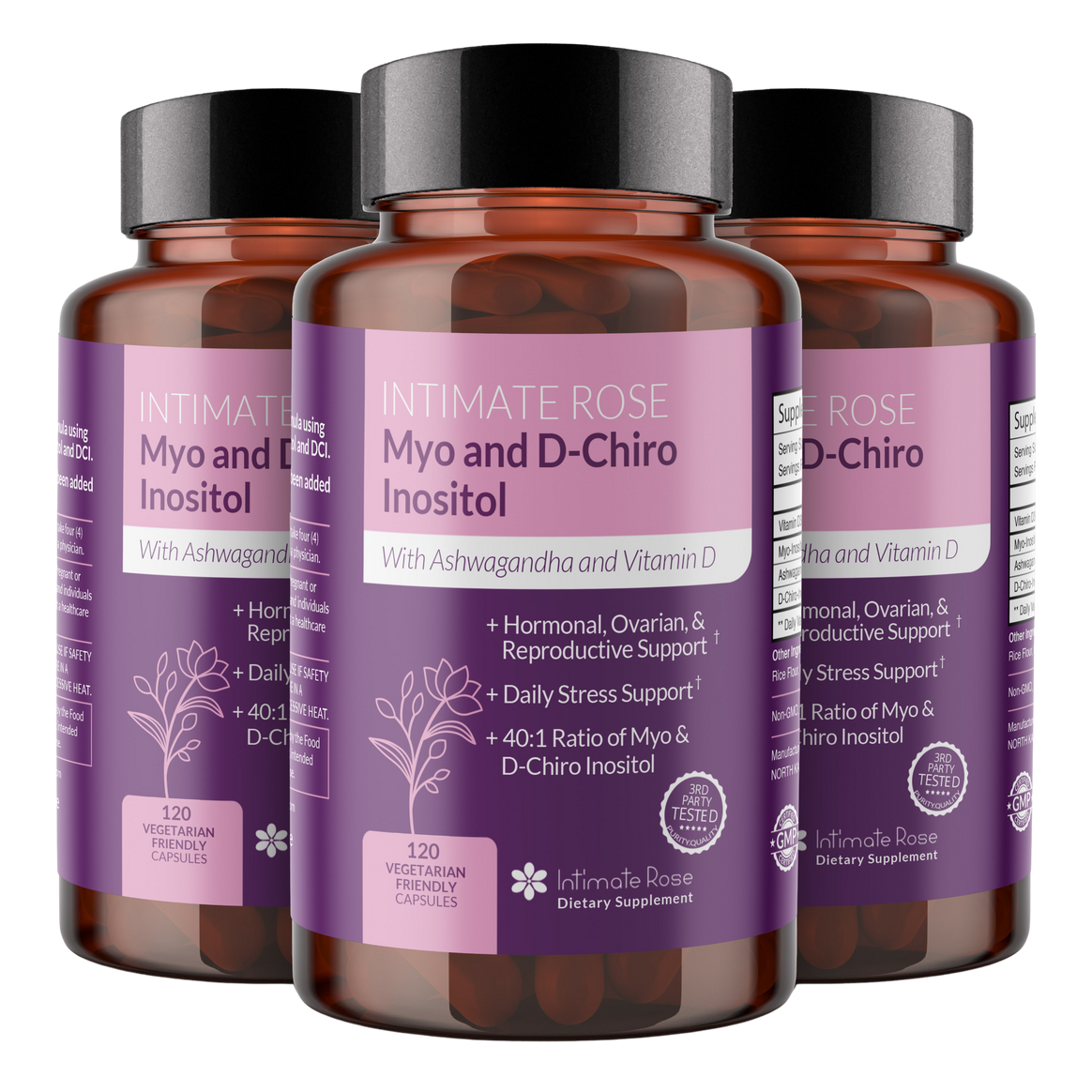
Conclusion
From ovarian cysts, high blood sugar, and infertility to mood swings and weight gain, PCOS is a complex condition that affects women’s bodies in various ways. Due to hormonal imbalances and insulin resistance weight loss can be especially difficult. However, sticking to a regular exercise plan and a healthy, balanced way of eating, will help the weight to slowly drop.
If you think you have PCOS and are trying to lose weight, try our tips above. Alternatively, schedule an appointment with a trainer and a nutritionist to discuss developing a PCOS weight loss plan that works for you. Lastly, if you are considering adding a probiotic or supplement to your daily intake, always speak with your doctor about it first.
References
Mayo Clinic – Polycystic Ovarian Syndrome - https://www.mayoclinic.org/diseases-conditions/pcos/symptoms-causes/syc-20353439
National Center or Biotechnology Information - Focus on metabolic and nutritional correlates of polycystic ovary syndrome and update on nutritional management of these critical phenomena - https://pubmed.ncbi.nlm.nih.gov/25200687/
Web MD – Polycystic Ovarian Syndrome and Weight Gain - https://www.webmd.com/women/polycystic-ovary-syndrome-pcos-and-weight-gain
National Center for Biotechnology Information - Dietary intake, body composition and metabolic parameters in women with polycystic ovary syndrome - https://pubmed.ncbi.nlm.nih.gov/30449604/
Very Well Health - Working With a Nutritionist When You Have PCOS -
https://www.verywellhealth.com/working-with-a-nutritionist-when-you-have-pcos-2616335
National Center for Biotechnology Information - The Role of Probiotics on the Microbiota: Effect on Obesity - https://pubmed.ncbi.nlm.nih.gov/26869611/
National Center for Biotechnology Information - Effects of Inositol(s) in Women with PCOS: A Systematic Review of Randomized Controlled Trials - https://www.ncbi.nlm.nih.gov/pmc/articles/PMC5097808/

Things Off Down There?




